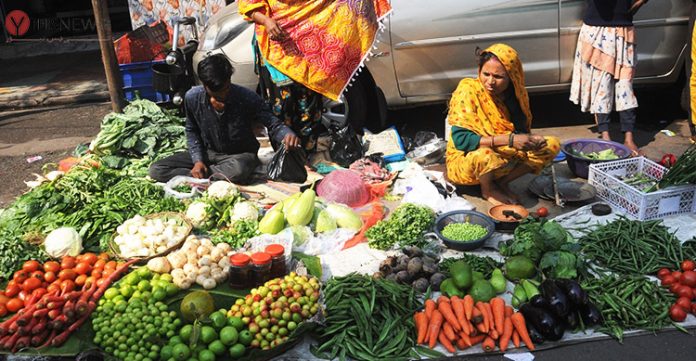As per the latest updates, after the LPG cylinder, rising costs of tomatoes and green vegetables are risking the everyday person’s kitchen financial plan. In the national capital, tomatoes are being sold for Rs 60-80; while in numerous urban communities its costs have arrived at Rs 100 in the midst of shortage in supply.
Aside from tomatoes, green vegetables have additionally gone costlier in contrast with the last week. According to sellers, these costs will increment further before long as they contend “vegetables frequently become costly during the stormy season”.
As per dealers at Azadpur and Ghazipur Mandi, Asia’s biggest vegetable and natural product market, the appearance of tomato (on the lookout) has tumbled down to about a third, prompting a lofty increase in its costs. Tomato is selling at Rs 65-80 for each kg in the retail market.
ALSO READ: Hyderabad: Tomatoes turn more expensive than mangoes
Lemon is being sold in Delhi for Rs 200 to Rs 250 for each kg. Likewise, brinjal is at Rs 60 to 80 for every kg, calabash (laoki) Rs 50, cauliflower Rs 100 to Rs 120, onion and potato Rs 40, capsicum Rs 100 to Rs 130, carrot Rs 80 and spinach is being sold at Rs 60 for each kg.
Different vegetables are likewise becoming costly in the midst of the deficit in supply, said a dealer, adding that the ranchers have not established new yields because of fear of loss, which would additionally build the costs of vegetables before very long.
Meanwhile, in another update, India has no immediate intention to lift the restriction on wheat trades, yet will go on with bargains that are done straightforwardly with different state run administrations, Commerce Minister Piyush Goyal informed media.
The improvement comes after International Monetary Fund (IMF) boss Kristalina Georgieva begged India to reexamine its restriction on wheat trades, saying the nation could assume a key part in worldwide food security and worldwide strength, revealed NDTV.
The world’s second greatest producer of wheat banned international deals of the grain on May 14 after a searing intensity wave diminished the result and domestic costs hit record highs. Worldwide wheat costs flooded after the decision.
(This story has been sourced from a third-party syndicated feed, agencies. Raavi Media accepts no responsibility or liability for the text’s dependability, trustworthiness, reliability, and data. Raavi Media management/ythisnews.com reserves the sole right to alter, delete or remove (without notice) the content at its absolute discretion for any reason whatsoever.)







